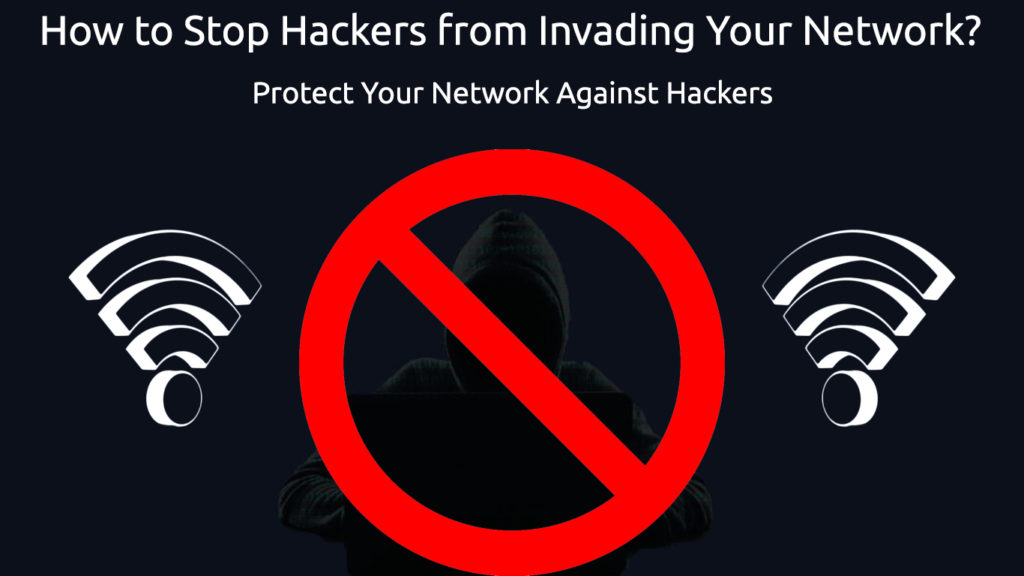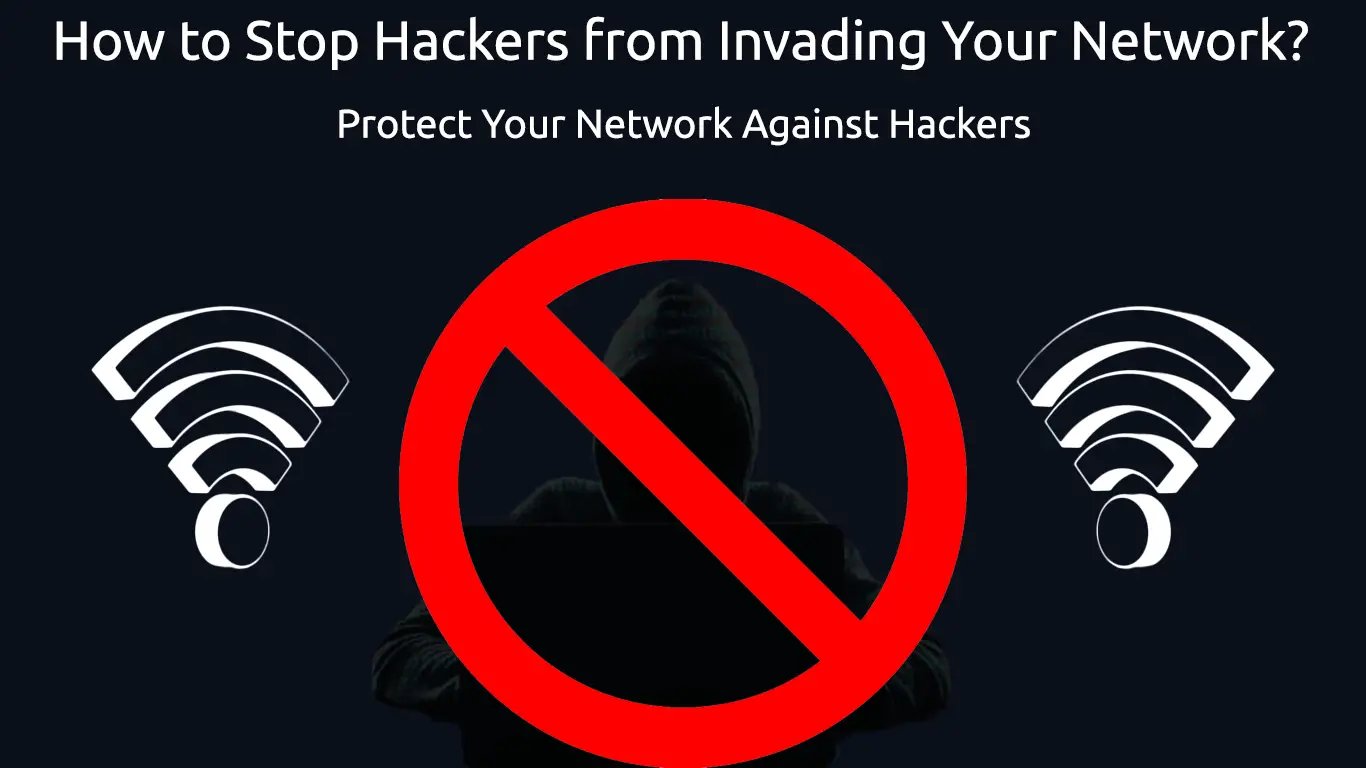Since before WWII, people have been dreaming about full automation in homes. Works on it took a giant stride during the ’60s, and inventors never looked back since. Today, many homes have smart household items such as TVs, fridges, washers, vacuum cleaners, and other devices – all linked to a Wi-Fi network. Since all traffic goes through a router, you might want to know how to stop hackers from invading your network with multiple security measures.
And the Internet of Things (IoT), where devices interconnect with each other, has been stepping up the pace since the last decade and has never shown any slowdown. You might want to counteract the increased exposure to hackers by employing the most excellent security system. Still, a lot of security breaches came about from the lack of basic security controls.
Here in this guide, we list the most common techniques to secure your network based on our thorough research and personal experience.

CONTENTS
Computer Hackers
Before we delve into the topic, it’d best to identify who these computer hackers are. They break into online devices such as PCs, laptops, tablets, and smartphones. Their purpose in breaking into your system is to have access to your sensitive data such as credit card details and your banking information.
Hackers have malicious intent, and they steal, amend, or remove information from your computer. They normally break into your network by placing malware programs without your knowledge, and when you realize it, they might already obtain your information.
So, here are the methods to safeguard your network.
Follow Forums
Did you know that hackers have their own forums where they share knowledge about hacking activities? When you join the forum, you can pick up the hacking techniques used, and they frequently update the latest methods and trends in hacking. If you have some kind of technical expertise, you’d be delighted to beat them at their own game!
Change Router’s Password
The router is like the central control where all the traffic comes in and goes out. If you leave a default password to log into your router (a default router password is usually “password”!), it’s like leaving your front door unlocked to make it easy for intruders to enter your home. Here’s how to change your router’s password:
You have to log into the router admin page to change its password. Prior to that, find out its IP address first.
There are a few methods of finding your Router’s IP address, but we’ll show you the easiest way. You can start by right-clicking the Windows Icon and choosing Windows PowerShell. Type “ipconfig” at the Command Prompt to view a list of information. The IP address is at Default Gateway.
Next, type in the IP address on your browser’s address bar. Type in a username and password to log in. Go to Settings and change the password, making sure it’s a strong and reasonably complicated one to avoid easy target for hackers to invade your network. A strict no-no is “123456”, “qwerty”, “<your name>”, and “<your birthday>”.
How to Change Router’s Wi-Fi Name and Password (NETGEAR Router)
Change Router’s Network Name (SSID)
While you’re inside the Router’s admin page, it’s wise to change the network name as well. The Wi-Fi name is technically called Service Set Identifier (SSID). A default SSID usually takes after the Router’s brand, e.g., TPLINK-5G. It will give a clue to the hackers to know what type of Router you own and put one leg inside to start cracking your password.
Customize your SSID and get creative, make it longer and more complex to give hackers no clues and make their malicious job harder. A plain SSID such as MY-WIFI or NETWORK5G can still expose it to proven password cracking techniques adopted by modern hackers.
WPA2 Encryption
WPA2 or Wi-Fi Protected Access 2 is a technology to enhance Wi-Fi network security using electronic data encryption. When you enable WPA2 (or the latest WPA3), other users can see the traffic, but it will be more difficult for hackers to pass through the encryption block. Instead, they would get their hands and try their luck on other less secured networks.
Antivirus Software
Today, we have almost two billion websites and counting fast. Everyone knows not all websites are safe. You can easily visit a website that unknowingly lets computer viruses and malware enter your network. Hackers evolve alongside and as quickly as the IT technology itself. They develop modern techniques and apps to sneak into vulnerable computers and networks, and in many cases, you only realize it when the damage has already been done.
Antivirus programs can safeguard your network from unauthorized software containing viruses and malware entering your network and operating system. Luckily we have antivirus programs such as McAfee, Norton, Kaspersky, and Bitdefender, to name a few. While some antivirus software provides automatic updates, you must also play your part to look up updates and ensure your subscription is always active.
Check Firewall Configuration
Your computer firewall is software that filters data entering your network. It scans data packets for viruses and other malicious programs threatening your computers and network. When the firewall finds anything that risks system security, it will prevent the threat from entering your network. Therefore, it’s important to check, analyze and update your firewall configuration from time to time to maintain tight security measures.
FAQ
Q: Can hackers go past firewalls?
A: Unfortunately, yes. Nothing is fool-proof, and hackers can break through networks no matter how safe they are, but a good firewall can better safeguard your network.
Q: What can I do if someone steals my data?
A: Once taken, nothing much can be done about the stolen data, but you can stop the hackers from accessing your network in the future by checking and deleting backdoor codes/programs left by them. Realizing the breach, moving forward, you should create hard drive backups and frequently back up your servers to avoid losing data.
Q: How to file charges against a hacker?
A: You need to track the hacker down. If you can’t do that, have the authorities identify them.
Q: Would it help if I changed my password frequently?
A: Yes, changing your password frequently helps make it safer, but make sure you don’t forget them. Better still, keep all your passwords in a secure password keeper app.
Conclusion
Just like how you would keep your house safe, you would also want to protect your network the same way. To keep your home secure, you’d allow certain people to enter it and latch it with high-security padlocks to avoid intruders. In the same manner, you’d keep your network safe by implementing various security measures that we have discussed in this post. All the measures listed above can help you stop hackers from invading your network.

Hey, I’m Jeremy Clifford. I hold a bachelor’s degree in information systems, and I’m a certified network specialist. I worked for several internet providers in LA, San Francisco, Sacramento, and Seattle over the past 21 years.
I worked as a customer service operator, field technician, network engineer, and network specialist. During my career in networking, I’ve come across numerous modems, gateways, routers, and other networking hardware. I’ve installed network equipment, fixed it, designed and administrated networks, etc.
Networking is my passion, and I’m eager to share everything I know with you. On this website, you can read my modem and router reviews, as well as various how-to guides designed to help you solve your network problems. I want to liberate you from the fear that most users feel when they have to deal with modem and router settings.
My favorite free-time activities are gaming, movie-watching, and cooking. I also enjoy fishing, although I’m not good at it. What I’m good at is annoying David when we are fishing together. Apparently, you’re not supposed to talk or laugh while fishing – it scares the fishes.

